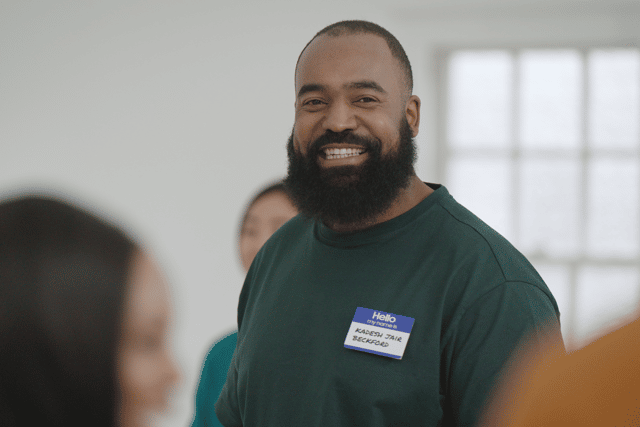Almost a third of adults feel judged by their name
This article contains affiliate links. We may earn a small commission on items purchased through this article, but that does not affect our editorial judgement.
A study, of 2,000 UK adults, found nearly half (48 per cent) of those, who are not white, have felt they’ve been treated differently based on their name.
Nearly a fifth (17 per cent) of these respondents felt their name has put them at a disadvantage when getting a job interview.
Advertisement
Hide AdAdvertisement
Hide AdAnd 14 per cent have even experienced bias or prejudice in social settings, when making friends or joining clubs, because of their name.
The research, commissioned by Samsung, also found more than one in 10 (14 per cent) have felt uncomfortable at work after having questions about their name.
Professor Pragya Agarwal, a behavioural and data scientist, visiting professor of social inequities and injustice at Loughborough University, and author of ‘SWAY: Unravelling Unconscious Bias’, said: “Names, much like our gender or racial identity, can be first triggers for stereotypes and assumptions about people, sending signals about who we are and where we come from.
“It is laziness, yes, but people very easily fall back on these assumptions. In my research and consultancy, I have seen how name discrimination is very widely spread during hiring and recruitment to career progression and leadership opportunities in the workplace.
Advertisement
Hide AdAdvertisement
Hide Ad“Such discrimination is often rooted in our implicit cognitive biases, but that does not mean that the impact is any less harmful. For many of us, names signify our cultural heritage, our histories, and our family values.
"It is important that organisations and workplaces do more to see people as individuals, and names are an integral part of people’s identity.
“Addressing name-based microaggressions, and its intersectional impacts, is an important step towards creating a culture of belonging and respect for everyone.”


The power of a name
The study also found, when making a new acquaintance, 26 per cent of those in ethnic minorities have been asked to repeat their name multiple times.
Advertisement
Hide AdAdvertisement
Hide AdAnd 16 per cent have even been asked if it’s their ‘real’ or ‘full’ name.
Among the most frequent misconceptions made about the names of those in ethnic minorities are where they’re from (39 per cent) and their cultural heritage (31 per cent).
As well as a false assumption that English isn’t their first language (27 per cent).
It also emerged 24 per cent of all respondents have witnessed others on the receiving end of discrimination in the workplace because of their name.
Advertisement
Hide AdAdvertisement
Hide AdMore than one in 10 (12 per cent) of those who aren’t white have felt the need to use different names in job applications or interviews.
To address this, more than a fifth (22 per cent) believe promotion of correct name pronunciation and understanding of cultural significance will help to reduce name bias in the workplace.
And 19 per cent would even like to see anonymous job applications, where names are removed from CVs to help alleviate prejudice, according to the data, conducted via OnePoll.
To coincide with the research, Samsung UK conducted a social experiment ‘The Fine Line’ where six people were asked their views on nicknames and name bias in the workplace.
Advertisement
Hide AdAdvertisement
Hide AdJessie Soohyun Park, a spokesperson for Samsung UK, added: “Embracing cultural difference and the value that different perspectives can bring, is intrinsic to building a positive, inclusive society that ultimately brings people together.
“I believe that names are not just labels to identify us, but important emblems that carry stories of heritage and identity. Let's build a culture where no one feels judged or silenced by the syllables that shape their identity.”
Comment Guidelines
National World encourages reader discussion on our stories. User feedback, insights and back-and-forth exchanges add a rich layer of context to reporting. Please review our Community Guidelines before commenting.